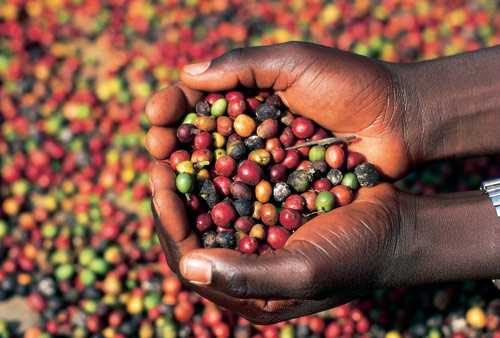LONDON, UK – Today, in London, like in many other parts of the West, if you want to top up on polyphenolic antioxidants or simply add some Vitamin C in your body, Fairtrade products such as fresh coffee and fresh bananas are some of the products widely available on the market to cater to your needs.
In fact, the UK is the world’s largest Fairtrade market, with more products and more awareness of Fairtrade than anywhere else. Indeed, Fairtrade sales in 2012 alone were in excess of £1.53 billion.
But what is the Fairtrade movement about, and has the movement achieved its main objectives over the last two decades?
According to the Fairtrade Foundation, Fairtrade is a concept primarily about better prices, decent working conditions, local sustainability, and fair terms of trade for farmers and workers in the developing world.
The Fairtrade standards requires companies to pay sustainable prices (never to fall lower than the market price) in order to address some of the injustices of conventional trade, which traditionally discriminates against the poorest, weakest producers from predominantly poor countries in Africa, Asia and Latin America.
When a company’s product such as coffee, sugar or banana has been awarded a Fairtrade mark, it means that that specific product meets the international Fairtrade standards, and it also shows that the product has been certified to offer a better deal to the farmers and workers in developing countries involved in producing it.
In essence, when compared to similar unmarked products on the market, a Fairtrade marked product has a premium price attached to it, which makes it relatively more expensive.
This premium price is an additional sum of money paid on top of the Fairtrade minimum price that farmers and workers invest in social, environmental and economic developmental projects to improve their businesses and their communities.
Farmers and workers themselves decide how that premium is spent.
Additionally, over the years, the number of groups of farmers and workers who have benefited from UK Fairtrade has increased to include farmers from over 60 countries across Africa, Asia, the Caribbean and Latin America.
Equally, country reports such as the Fairtrade in Malawi report indicates that certified sugar farmers and their communities have experienced tangible and significant economic, social, and organisational benefits from Fairtrade.
Indeed, according to Malawi Fairtrade Network Chairperson, Doreen Chanje, Fairtrade has “gradually enabled farmers’ standards of living to improve with a higher proportion of certified farmers now able to pay school fees for their children, ensure household food security, increase their assets and experience more stability in incomes”.
Likewise, the number of Fairtrade certified producer organisations supplying the UK market rose by 56 percent from 428 in 2008 to 669 at the end of 2012. Also, as of 2012, 40 percent of the retail sugar market, 30 percent of banana market and 28 percent of coffee market are all Fairtrade.
UK public support is also unprecedented, with more and more people buying into the Fairtrade market. In fact, according to the 2012/13 Fairtrade Annual Review, estimated retail sales value of Fairtrade products rose from £712, million in 2008 to £1.53 billion in 2012, which represented a 215 percent increase.
Has the movement helped local farmers?
Not so much, if you are to note down some of the shortcomings highlighted in a report commissioned by the UK government and produced by the School of Oriental and African Studies.
The Fairtrade, Employment and Poverty Reduction in Ethiopia and Uganda (FTEPR) project which lasted for four years set out to establish how global trade in agricultural commodities affects the lives of farmers and workers in rural Africa, especially through wage employment.
According to Professor Christopher Cramer, one of the report’s authors, the research team were not surprised to learn that people, who depend for their survival on access to manual agricultural wage employment, are much poorer than others in the same area.
Similarly, the report indicates that Fairtrade standards are far too concerned with the incomes of producers than they are with the wages of the workers themselves.
Junior Sabena Mutabazi















